Sabina Nessa: Group marks anniversary of teacher's murder
 Nessa Family
Nessa FamilyOne year ago, on 17 September 2021, Sabina Nessa walked through a park to meet a friend for an evening drink.
She was 28 and a primary school teacher. She did not arrive. Her body was found the following evening.
A year later, the fear of being murdered by a stranger has led to one group campaigning for change.
Those in the group did not know Ms Nessa. Or Shadika Patel or Maria Rawlings , or Sarah Everard, or sisters Bibaa Henry and Nicole Smallman.
Just some examples of women murdered by men they did not know in London, in 2020 and 2021.
But the campaign group does know what it is to be a woman.
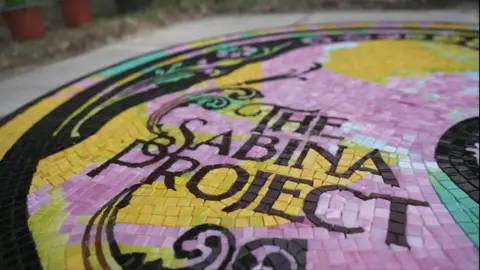
Students at Greenwich University, where Ms Nessa studied, have established the Sabina Project.
The young women say they are coming together to "use the law to end male violence".
They all say they have made changes to how they live their lives because of fearing male violence - and they believe more men need to reconsider their behaviour.
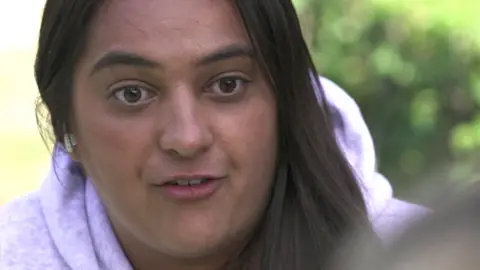
Following Ms Nessa's death, there was "a sense of alarm, women were really panicking," said Kareema Motala, the president of the Sabina Project.
"A lot of them lived near to Sabina, a lot of them were concerned about their own safety.
"You don't need to know the person that could potentially kill you."
The project is partly about raising awareness of issues that contribute to male violence.
Ms Motala said: "We know that children as young as 10 can access very violent pornography. And if that is the foundation for a young man's belief and understanding of how a woman wants to, and should, be treated, it's a terrifying prospect."
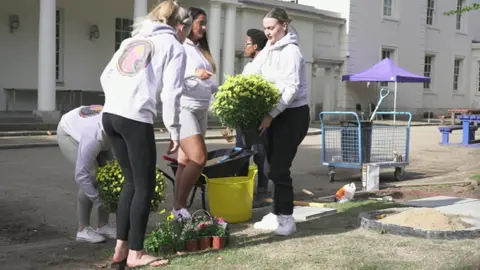
Ms Nessa was murdered by a man who had driven to London from East Sussex intent on harming a woman at random, after being rejected by his estranged wife.
He could have attacked any woman. It did not matter to him.
Student Holly Miles said some of her male friends did not understand why she and other women were anxious about walking alone.
"It only came to when Sarah Everard was murdered and Sabina Nessa was murdered that my male friends said 'Oh, that is a legitimate concern'.
"I shouldn't be in a position where I'm having to turn my location on when I get in a cab for five minutes up the road or I feel I can't walk home from a train station that's literally minutes away from my house".
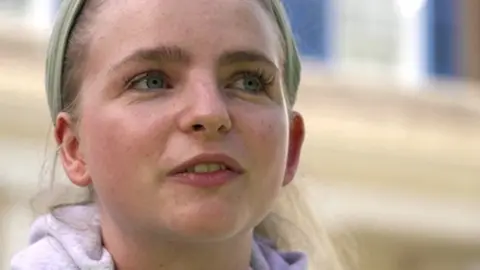
Campaigner Pagan-Lilley Phillips said the topic should be discussed everywhere: "In your barbers shops, in your places of worship, in our schools and colleges, we need young men and boys to have these conversations.
"Otherwise nothing changes.
"As women, I'm sure you have these conversations with your friends - are we having these conversations weekly with our male friends?"
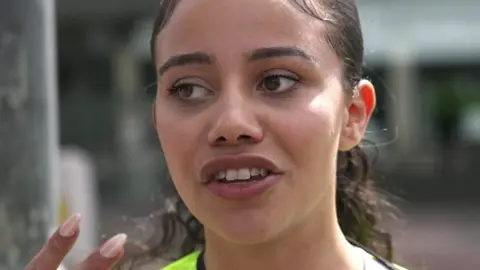
In a different part of London, in Ilford, another community is also searching for answers.
Zara Aleena, 35, was killed in June as she walked home from a night out, an inquest heard in July.
She was 10 minutes away from home, was found with severe injuries and later died in hospital.
April Mehmet is the founder of Walk it Out, a group that gets together to walk and talk.
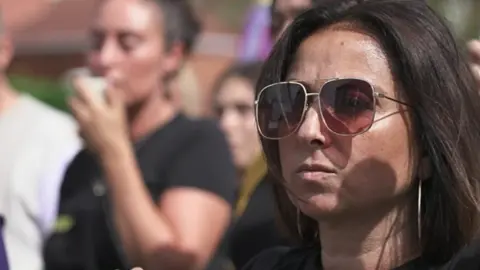
"I didn't know who she was or where she was from. I just thought 'enough is enough'. Something needs to be done to protect us females.
"It is more than just saying we need better street lighting or more police out and about.
"Street harassment needs to be a criminal offence. Girls will feel more confident to report a crime or men might think twice about doing something. That's what the government can do in regards to in the local community."
She added: "Everybody needs to take responsibility for their own actions regarding certain behaviours of men. There needs to be a clear message about respect.
"We need respect. We want respect."
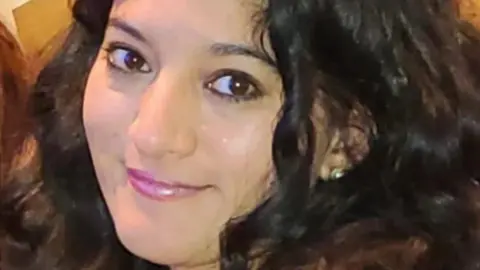 Aleena family
Aleena familyAmong those campaigning for change is Zara Aleena's aunt, Farah Naz.
She said: "There's no point trying to build self-esteem for girls if you don't change society... and girls are born into a society that's strongly misogynistic. Boys need to learn how to communicate with girls so they don't grow up to be haters of women."
Sabina Nessa was walking home.
Shadika Patel was waiting for a bus.
Maria Rawlings was on a bus.
Sarah Everard was walking home.
Bibaa Henry and Nicole Smallman were in a park.
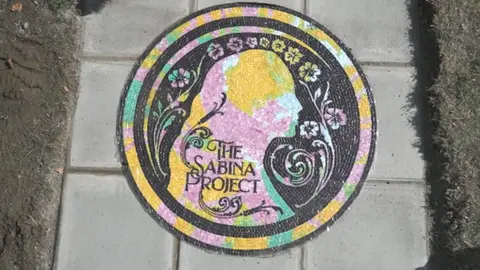
They were ordinary women made extraordinary by horrific male violence. Among them, a talented artist, a trainee lawyer, a valued social worker. Mothers and sisters and daughters. Friends and colleagues and educators.
A handful of men believed they had the right to take everything; The Sabina Project - and others like it - is one small attempt to tell them they did not.

Follow BBC London on Facebook, Twitter and Instagram. Send your story ideas to [email protected]
